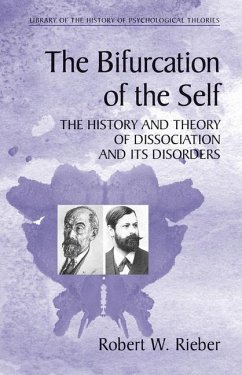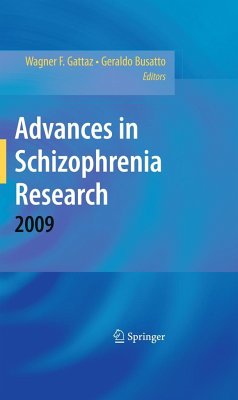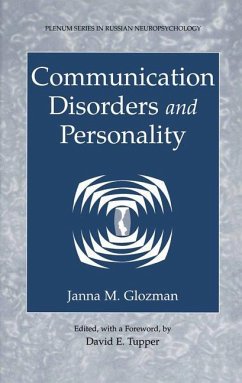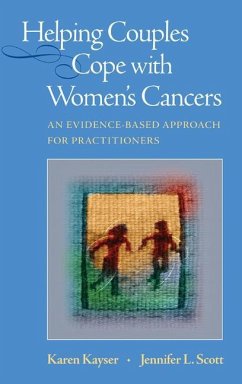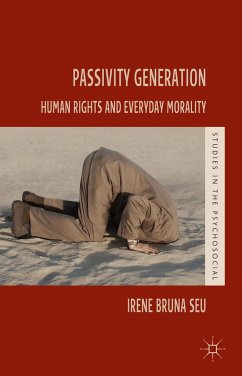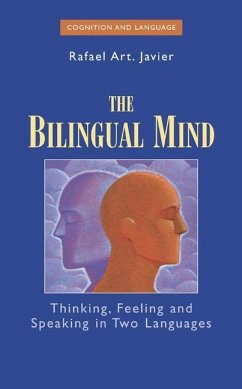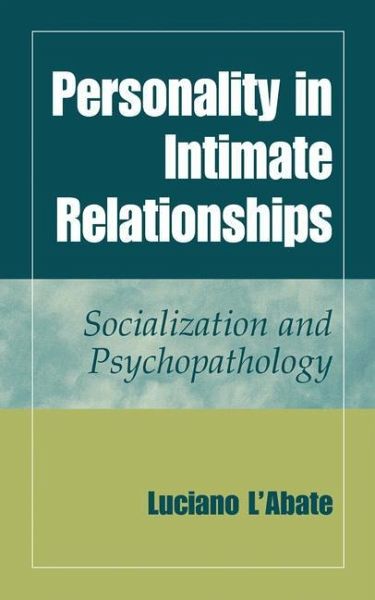
Personality in Intimate Relationships
Socialization and Psychopathology

PAYBACK Punkte
19 °P sammeln!
Four decades of contributions to personality theory and family practice have earned Luciano L'Abate a worldwide reputation for therapeutic insights. Now he expands on his pathbreaking relational theory of personality to apply it to the twenty-first-century family in all its configurations. Personality in Intimate Relationships showcases L'Abate's trademark elegant style and provocative ideas in his most accessible work to date.Based on Axes I and II of the DSM-IV, the book describes relationships along a readily identifiable continuum ranging from optimal functionality to severe pathology, lin...
Four decades of contributions to personality theory and family practice have earned Luciano L'Abate a worldwide reputation for therapeutic insights. Now he expands on his pathbreaking relational theory of personality to apply it to the twenty-first-century family in all its configurations. Personality in Intimate Relationships showcases L'Abate's trademark elegant style and provocative ideas in his most accessible work to date.
Based on Axes I and II of the DSM-IV, the book describes relationships along a readily identifiable continuum ranging from optimal functionality to severe pathology, linking the author's conceptual framework to specific diagnostic strategies, therapeutic interventions, and prevention programs. L'Abate's theory not only integrates individual and family theories and seemingly disparate schools of thought, but is also inclusive of nontraditional relationships-grandparent/grandchild dyads, adoptive families, same-sex couples, and others-that are often left out of the family literature.
Among the key areas explored in the book:
- Selfhood and self-differentiation
- Confrontation and sharing of hurt feelings
- Negotiating, bargaining, and problem-solving
- Dealing with distance and closeness
- Intimacy and the ability to love
In addition, the reader is referred to complementary online appendices that supply helpful questionnaires, workbooks, and ideas for further applications.
Personality in Intimate Relationships offers fresh perspective to all frontline practitioners as well as investigators in this area. It is also ideal for graduate courses in abnormal psychology and personal development.
Based on Axes I and II of the DSM-IV, the book describes relationships along a readily identifiable continuum ranging from optimal functionality to severe pathology, linking the author's conceptual framework to specific diagnostic strategies, therapeutic interventions, and prevention programs. L'Abate's theory not only integrates individual and family theories and seemingly disparate schools of thought, but is also inclusive of nontraditional relationships-grandparent/grandchild dyads, adoptive families, same-sex couples, and others-that are often left out of the family literature.
Among the key areas explored in the book:
- Selfhood and self-differentiation
- Confrontation and sharing of hurt feelings
- Negotiating, bargaining, and problem-solving
- Dealing with distance and closeness
- Intimacy and the ability to love
In addition, the reader is referred to complementary online appendices that supply helpful questionnaires, workbooks, and ideas for further applications.
Personality in Intimate Relationships offers fresh perspective to all frontline practitioners as well as investigators in this area. It is also ideal for graduate courses in abnormal psychology and personal development.





